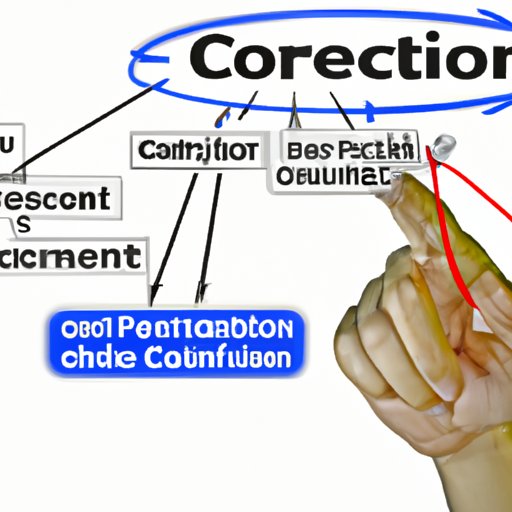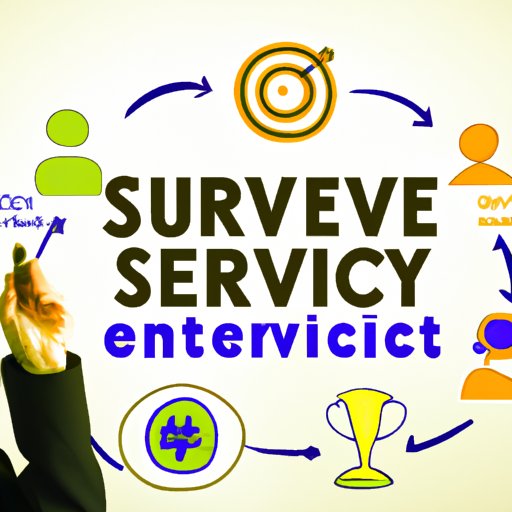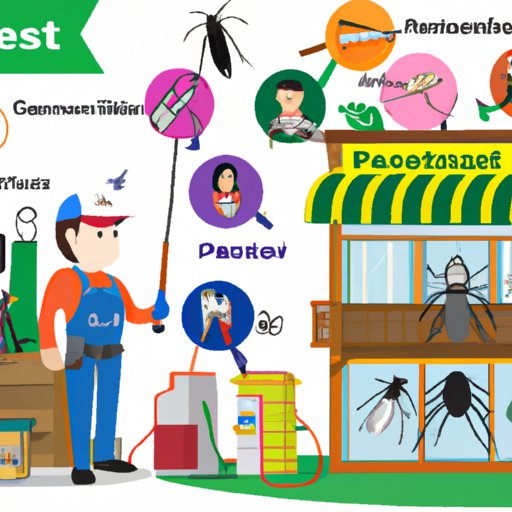Introduction
Pest control is an important part of any home or business. It involves the use of various methods to reduce the number of pests in a given area. These methods include trapping, baiting, chemical treatments, and physical removal. With the right knowledge and resources, starting a pest control business can be a lucrative venture.

Definition of Pest Control
Pest control is the process of managing and eliminating pests such as insects, rodents, and other animals that can cause harm to humans, property, or the environment. Pest control businesses provide services to both residential and commercial customers. These services may include inspecting buildings for pests, applying treatments to eliminate existing infestations, and providing advice on how to prevent future infestations.
Benefits of Starting a Pest Control Business
Starting a pest control business can be a great way to make a living. It is a low-cost business to start and can be run from home with minimal overhead. Additionally, there is a wide range of services that can be offered, so you can customize your services to meet the needs of your customers. Another benefit is that pest control businesses are usually recession-proof, as people will always need these services regardless of the economic climate.

Research the Local Market and Regulations for Pest Control Businesses
Before you get started, it is important to research the local market and regulations for pest control businesses. This can help you determine if there is enough demand for your services and ensure that you are compliant with all applicable laws.
Analyze the Market Demand
It is important to understand the market demand for pest control services in your area. Research online to find out what services are already being offered and how much they cost. You should also talk to potential customers and ask about their needs and expectations. This will help you determine what services you can offer and how much to charge.
Understand Local Regulations
Once you have an understanding of the local market, you should familiarize yourself with the regulations for starting a pest control business. Different states and cities have different rules and regulations, so it is important to understand what is required of you before you get started. This includes obtaining the necessary licenses and permits, as well as ensuring that your business complies with all applicable health and safety regulations.
Develop a Business Plan
Once you have done your research, it is time to develop a business plan. This document should outline your goals, budget, and services offered. It should also include a financial plan, marketing strategy, and customer service plan. Having a clear plan in place can help you stay organized and focused on achieving your goals.
Set Goals
The first step in developing a business plan is to set goals. Think about what you want to accomplish in the short-term and long-term. For example, you may want to reach a certain number of customers within the first year or increase your profits by a certain percentage in the next five years. Setting measurable goals can help keep you motivated and on track.
Estimate Budget
In addition to setting goals, you should also estimate your budget. Consider the costs of licenses and permits, equipment and supplies, marketing, and employee salaries. You should also factor in the cost of insurance, taxes, and other expenses. Estimating your budget can help you create a realistic plan for success.
Outline Services Offered
Once you have established your goals and estimated your budget, you should outline the services you will offer. Think about what types of pest control services you will provide and how you will differentiate yourself from competitors. Developing a comprehensive list of services can help you attract new customers and retain existing ones.
Obtain Licenses and Certifications
In order to legally operate a pest control business, you must obtain the necessary licenses and certifications. Each state has its own requirements, so it is important to research what is needed in your area. This may include obtaining a business license, pesticide license, and/or certification from a professional organization.
Research Requirements
The first step in obtaining licenses and certifications is to research the requirements in your state. Contact your state’s department of agriculture or environmental protection agency to find out what is needed. Additionally, some states require pest control technicians to be certified by a professional organization, such as the National Pest Management Association (NPMA).
Submit Necessary Applications
Once you have researched the requirements, you should submit the necessary applications. This may include completing an application for a business license, pesticide license, and/or certification from a professional organization. Make sure to read all instructions carefully and provide all required documents.
Purchase Equipment and Supplies
Once you have obtained the necessary licenses and certifications, you are ready to purchase equipment and supplies. This may include traps, bait, protective clothing, and other items needed to perform pest control services. You should create an inventory list of all the items you will need and purchase them in bulk to save money.
Identify Necessary Items
The first step in purchasing equipment and supplies is to identify the items you will need. Talk to other pest control professionals and research online to get an idea of what is available. You should also consider the types of services you will be offering and the size of the areas you will be treating.
Create an Inventory List
Once you have identified the necessary items, you should create an inventory list. This will help you keep track of the items you have in stock and the items you need to order. Additionally, it can help you budget for future purchases.

Market Your Business
Now that you have the necessary licenses and equipment, it is time to start marketing your business. There are many ways to promote your services, including social media, networking with other businesses, and advertising in local publications. Utilizing multiple channels can help you reach a larger audience and build awareness of your business.
Utilize Social Media
Social media is a great way to reach a large audience quickly. Create accounts on popular platforms such as Facebook, Twitter, and Instagram, and post regularly about your services. Additionally, you can join relevant groups and share your posts with members.
Network With Other Businesses
Networking with other businesses in your industry can be a great way to generate leads and referrals. Attend local events and connect with other professionals. You may even be able to collaborate with other businesses to offer bundled services.

Develop Customer Service Strategy
Your customer service strategy is just as important as your marketing strategy. Investing in training your employees can help ensure that they are providing excellent customer service. Establish quality standards and provide feedback to your employees to ensure that they are meeting those standards.
Establish Quality Standards
The first step in developing a customer service strategy is to establish quality standards. Determine what level of service you expect from your employees and clearly communicate those expectations. Additionally, set up systems to measure customer satisfaction, such as surveys and feedback forms.
Invest in Training Employees
Investing in training your employees can help ensure that they are providing excellent customer service. Provide regular training sessions and give employees feedback on their performance. Additionally, reward employees for providing exceptional service.
Conclusion
Starting a pest control business can be a rewarding and profitable endeavor. The key to success is doing your research, creating a business plan, obtaining the necessary licenses and certifications, purchasing equipment and supplies, marketing your business, and developing a customer service strategy. With the right knowledge and resources, you can launch a successful pest control business.
(Note: Is this article not meeting your expectations? Do you have knowledge or insights to share? Unlock new opportunities and expand your reach by joining our authors team. Click Registration to join us and share your expertise with our readers.)
